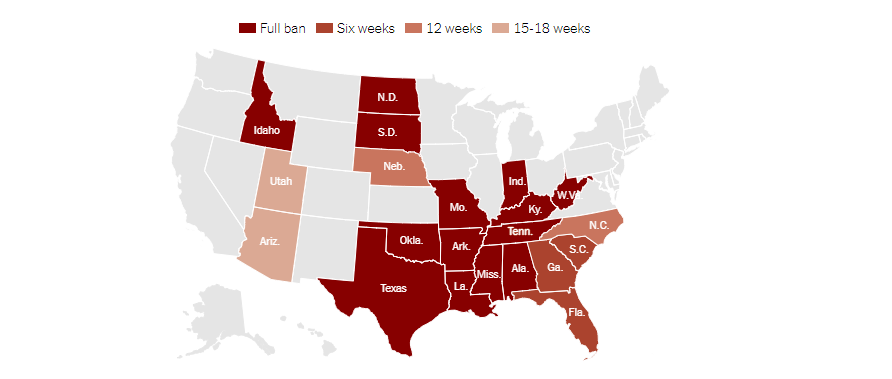When the Supreme Court overruled Roe v. Wade in 2022, In Vitro Fertilization (IVF) was seemingly still protected. Earlier this year, all of that changed.
IVF is an operation used to assist couples with fertility problems in having a baby. The process as a whole is as complicated as it is invasive, takes weeks and often must be repeated multiple times to ensure fertilization.
When Alabama placed restrictions on IVF treatments in February, another barrier was created for couples who want to have children, but can’t. This case stands as an unparalleled indicator of regression in women’s reproductive rights in America.
You would think anti-abortion groups would be a little bit more welcoming towards alternative fertility procedures, especially safe ones. The irony and hypocrisy of these interest groups presented itself upon the Alabama ruling, in which embryos in and outside of the womb were granted the same constitutional rights as children.
Even if one tries to ignore the clear-cast constitutional violations, classism and discrimination, what Roe v. Wade and the IVF cases truly strip down to is whether or not women are granted healthcare. Their right to regulate what goes on in their body – and to choose how to take care of it – was completely taken away. The second we are deprived of our bodily autonomy is the second we lose all democratic integrity as a country.
I can’t help but constantly wonder why. Why on earth I get to exist in a world with exponential technological advancement and a generation of electrifyingly inspired American intellectuals and artists, but women’s rights stubbornly remain decades behind.
As shocking as the reversal of Roe v. Wade was, it has proven to be merely a warning shot.
Making IVF a legally risky procedure creates hesitation for couples to seek IVF and inquire about other underlying health concerns regarding fertility.
To say that Americans were appalled by the Alabama ruling is an understatement. Since Alabama IVF programs were placed on hold, rallies held by advocates have broken out to protect the treatment. Almost immediately, Alabama courts scrambled to tame the fire. Three bills were passed (SB 160, HB 237, SB 159) to place protections on IVF treatments.
So why am I still concerned?
Despite efforts to subdue the controversy, the ruling has set a precedent for potential lawsuits in the future since none of the passed bills directly address whether or not an embryo is considered an unborn child or not.
This precedent daunts me. If, in present day, my worth is less than that of an unborn child, how will the government determine my worth 10 years from now?
In a global context of abortion restrictions, the U.S. stands out like a sore thumb. According to the Center for Reproductive Rights, 59 countries have liberalized their abortion laws since 1994 to make abortions more safe and accessible. Only four countries have removed legal grounds for abortion entirely; including the U.S., Poland, El Salvador and Nicaragua.
So why is the U.S. such an outlier? Why does it feel like the rest of the world is rapidly breaking barriers while the U.S. is trudging in the opposite direction?
Because with rulings like the IVF one, new doors are opened upon a set precedent that preserves the state’s interest in protecting the right of prenatal life, despite the stage of development. This, with the overturning of Roe v. Wade and the Dobbs v. Jackson Women’s Health Organization (2022) has the long-lasting effect of implying that embryos take priority over the mother’s physical, emotional or financial ability to deliver a child.
It’s difficult to know where to place the anger. To allow such a morbid violation of constitutional rights to be completely brushed over in legislature is almost dystopian, almost surreal.
Although my rights are protected in Illinois, the national conversation lingers in my head just as strongly as it pervades throughout the country. Every waking moment I spend happy and healthy, in a middle-class home with a sizable education, there is an 18 year old girl in some parallel universe mourning her lifelong hopes and dreams; whose world got completely turned upside down because the government decided she was less valuable than the peanut-sized cluster of cells growing inside of her.
It seems like there’s always a corner of the country earmarked for discrimination; for some sort of hidden prejudice or unfairness like a snake creeping through tall grass, strangling the lives of women as it continues on unnoticed.







